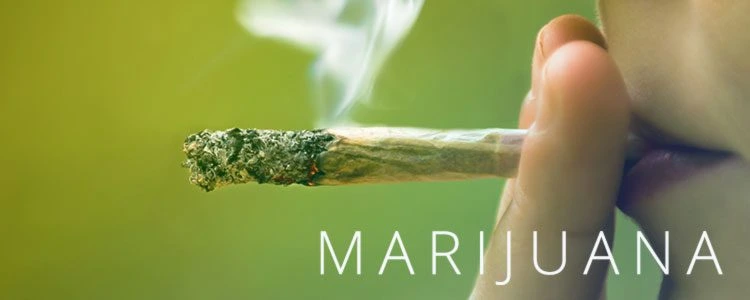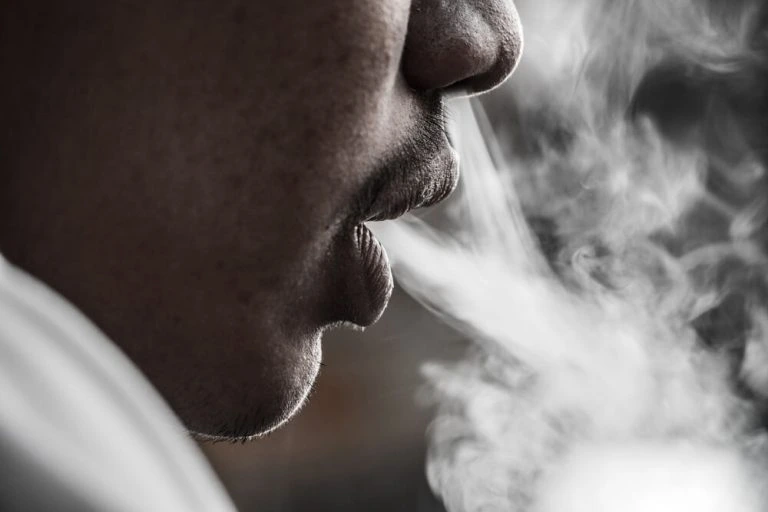Marijuana Withdrawal
Studies show that approximately 48 million American adults currently use marijuana.About 10% of regular cannabis users will develop a marijuana use disorder or marijuana addiction. If you are addicted to marijuana and want to quit, you may experience unpleasant marijuana withdrawal symptoms. These symptoms may be distressing enough that you seek out professional detox services. A marijuana detox program can provide you with medical care, oversight, monitoring, and detox counseling.
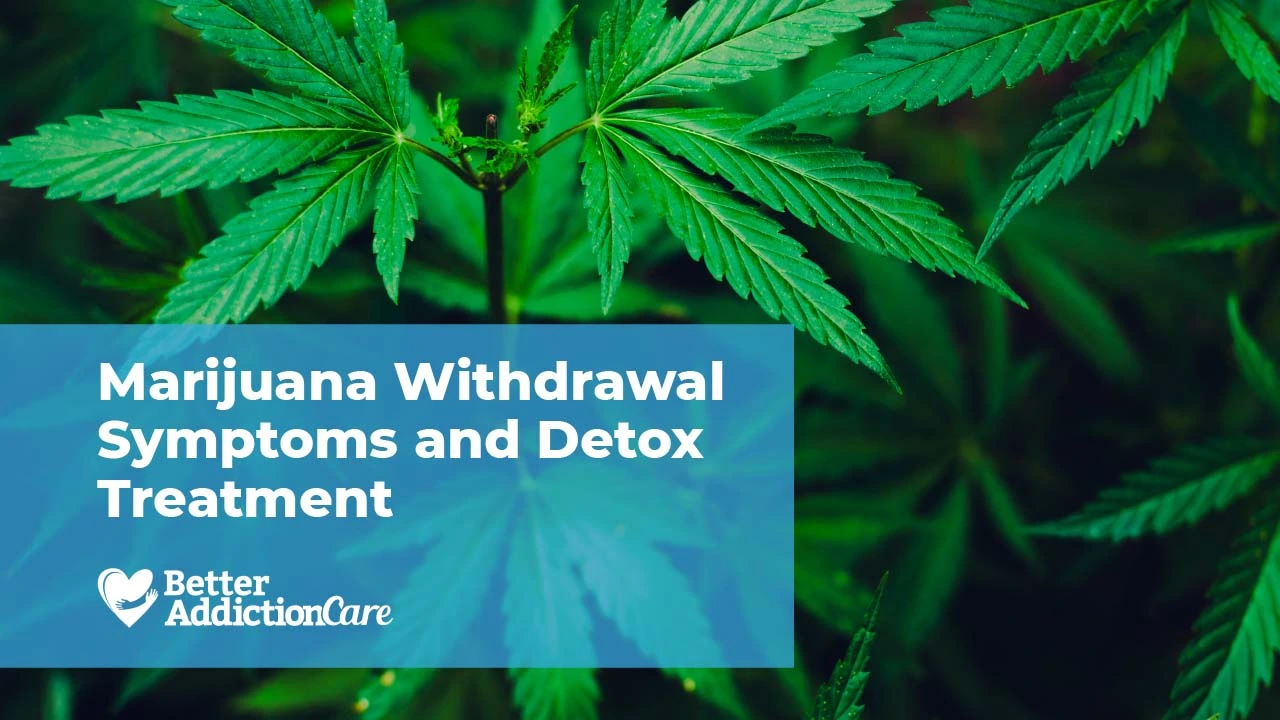
What Causes Marijuana Withdrawal?
Marijuana’s psychoactive component is called delta-9-tetrahydrocannabinol (THC). When you smoke or eat marijuana, the THC binds to and activates cannabinoid receptors in the endocannabinoid system in your brain. THC also activates your brain’s reward system by stimulating neurons that release dopamine at high levels. Dopamine is the “feel-good” neurotransmitter responsible for pleasure, euphoria, relaxation, and feelings of reward. This dopamine surge, which is much higher than that of a natural reward like eating, reinforces repeated marijuana abuse, which helps contribute to marijuana addiction.
Chronic marijuana use can cause neuroadaptations, or changes to brain structure and function, particularly to the endocannabinoid system and dopaminergic receptors. These neuroadaptations result in a physiological dependence on marijuana, meaning you need to use weed to feel “normal.” Without marijuana, you will experience decreased dopamine levels, which can lead to negative emotionality, depressive symptoms, lack of motivation, mood swings, and more.
It’s this combination of effects that leads to marijuana dependence and addiction. You may not realize that you’re dependent on cannabis until you’ve tried to quit and experienced withdrawal symptoms. Due to the unpleasant nature of marijuana withdrawal, you may relapse to alleviate these symptoms, thus perpetuating a compulsive cycle of marijuana abuse.
Marijuana Withdrawal Symptoms
When you suddenly quit heavy marijuana use, you will experience withdrawal symptoms, such as:
- Irritability
- Anxiety
- Restlessness
- Anger
- Aggression
- Depression
- Sleep disturbances
- Decreased appetite
- Lack of motivation
- Negative affect
- Abdominal pain
- Tremors
- Fever
- Sweating
- Chills
- Headache
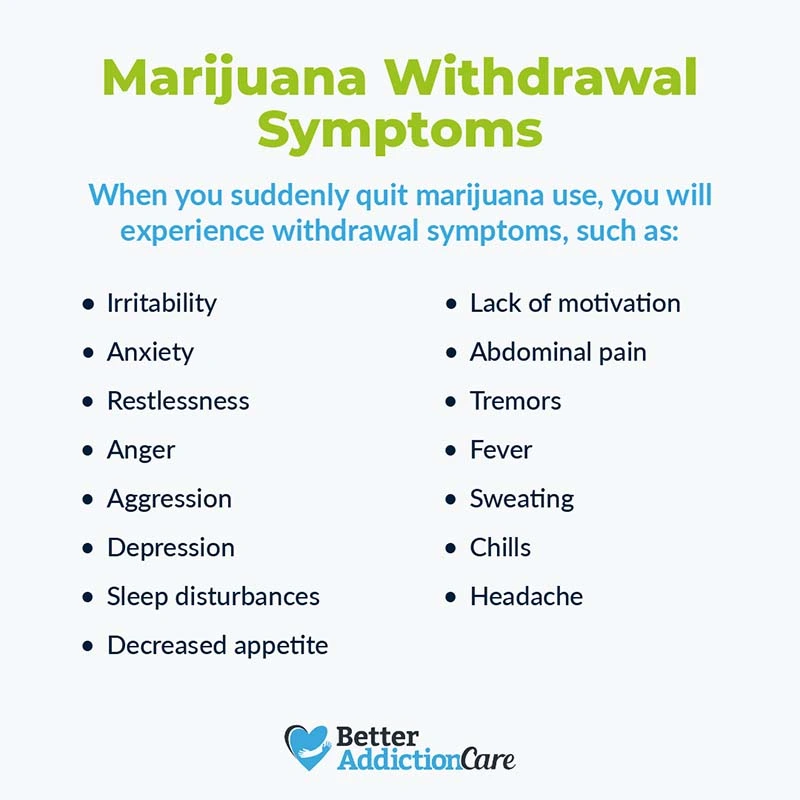
Withdrawal Timeline
Typically, marijuana withdrawal symptoms will emerge within 1-2 days after you quit using. These symptoms can last anywhere from 7-14 days. The severity and duration of your marijuana withdrawal symptoms depend on several factors, such as:
- Your individual physiology
- Whether you are using any other substances
- How long you’ve been using marijuana
- How much marijuana you typically use
- Whether you’ve had previous withdrawal experiences
Once acute marijuana withdrawal has resolved, you may experience protracted withdrawal symptoms for weeks or even months. For example, a 19-study review on marijuana withdrawal found that sleep disturbances and odd dreams lasted for at least 45 days after quitting. These persistent symptoms are known as post-acute withdrawal symptoms (PAWS).
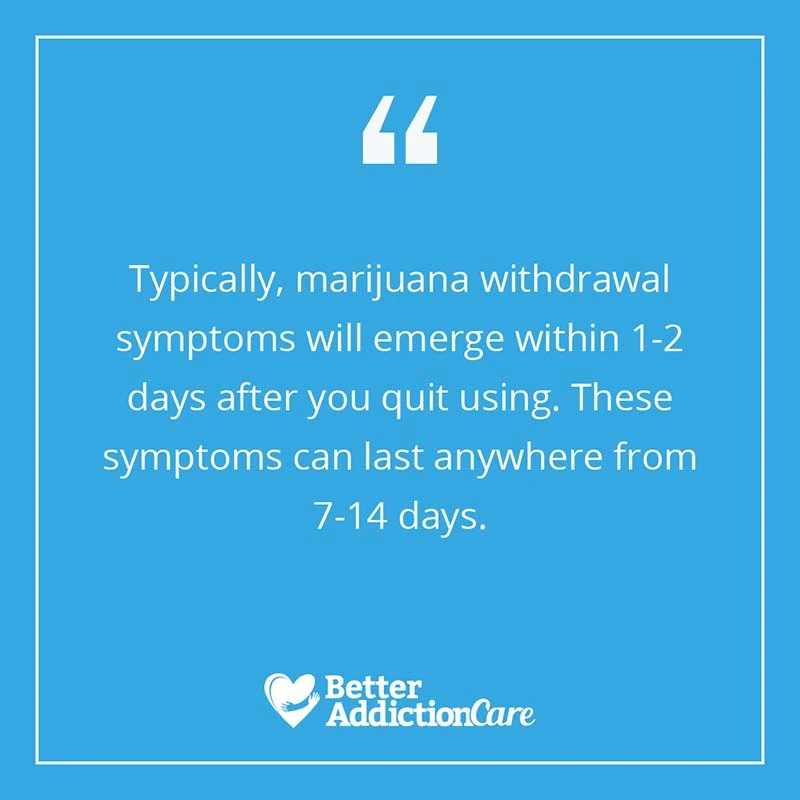
Is Marijuana Withdrawal Dangerous?
Marijuana withdrawal syndrome does not typically cause severe or dangerous physical symptoms in the way that other substances like alcohol, benzodiazepines, or opioids do. However, the most dangerous marijuana withdrawal symptoms are often psychological, such as depression or anxiety. Research has found that those with depression are more likely to use cannabis than those without depression. In depressed individuals, marijuana withdrawal could exacerbate their depression, leading to potential relapse and/or suicidal ideation. In fact, research has also revealed that marijuana use is linked to increased rates of suicidal thoughts.
If you are dependent on marijuana and have co-occurring depression, it’s important that you seek out a dual diagnosis treatment program that provides comprehensive and integrated treatment.
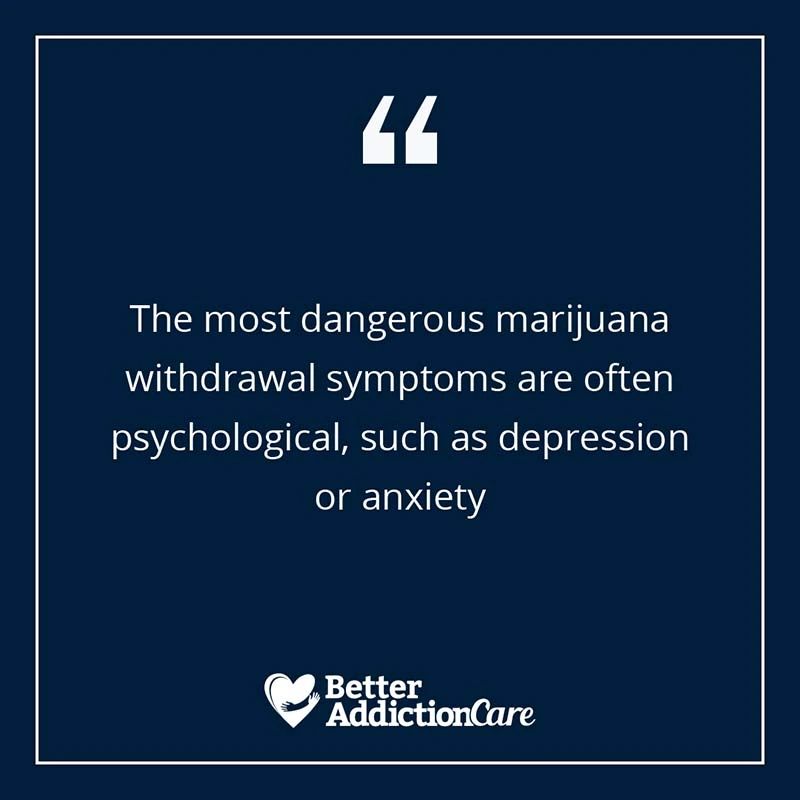
Detox Treatment: Managing Marijuana Withdrawal
You don’t have to go through marijuana withdrawal alone; professional detox programs are available to help you detox from marijuana safely and comfortably. Marijuana detox can occur in several settings, including:
- Medically managed inpatient detox: Medically managed detox is the most intensive inpatient detox option. You stay at the hospital or medical facility while you detox from withdrawal and receive 24/7 medical care and supervision. A team of nurses and doctors supervise you and are there to prevent and address any potential medical emergencies. While marijuana withdrawal is not typically life-threatening, it might be the best setting for someone with a co-occurring medical condition or severe depression.
- Medically monitored inpatient detox: A step down from medically managed detox, you receive around-the-clock care in a freestanding detox facility. A nurse typically monitor yours progress and administers any symptomatic medications for marijuana withdrawal.
- Clinically managed residential detox: This form of marijuana detox occurs in a nonmedical or social detox setting and emphasizes peer support. You receive 24/7 support but no medical care or oversight.
- Ambulatory detox with extended onsite monitoring: A form of outpatient marijuana detox, you may attend detox sessions at a hospital during the day.
- Ambulatory detox without extended onsite monitoring: The least intensive marijuana detox setting, you will attend outpatient detox at a doctor’s office.
Medications for Marijuana Withdrawal
Unfortunately, there are currently no marijuana withdrawal medications approved by the Food and Drug Administration (FDA). However, the detox team may provide you with medications to address specific symptoms, such as over-the-counter pain medications. Because of your marijuana addiction, they are unlikely to prescribe you controlled substances, such as Xanax for anxiety—this is because Xanax can be addictive.
Some studies have tested the efficacy of various medications for cannabis withdrawal. These medications may be cannabinoid receptor agonists that alleviate withdrawal symptoms—much like how treatment teams manage heroin withdrawal with methadone, another opioid. The other medication option includes those that alleviate targeted withdrawal symptoms, such as depression or anxiety. For example, Nefazodone, an antidepressant, has been shown to relieve anxiety in those going through marijuana withdrawal.
Transition to Rehab After Withdrawal
Marijuana addiction is a serious issue for many people, which is why attending detox is only the first step in the healing process. Once you are medically stabilized and substance-free, you are ready to transition to marijuana rehab.
Research shows that adults seeking treatment for marijuana addiction have been using cannabis daily for more than 10 years and that many have tried to quit at least six times. The good news is that effective marijuana treatment options are available that can help you get clean and sober.
Cognitive-Behavioral Therapy (CBT)
CBT is a form of psychotherapy that analyzes the connection between your thoughts, feelings, and behaviors. By understanding this connection, you can then rectify your unhealthy thought and behavioral patterns to abstain from marijuana use in the long run. It is a highly effective treatment approach that’s often combined with other treatment methods to ensure positive treatment outcomes.
Contingency Management (CM)
Contingency Management is an addiction treatment method that utilizes a reward-based system in which you receive tangible rewards to help reinforce positive and abstinent behaviors.
Motivational Enhancement Therapy (MET)
Motivational enhancement therapy is a short-term intervention that helps resolve any mixed feelings or contradictory ideas about entering marijuana addiction treatment. It’s important to understand that these contradictory thoughts and feelings are the reason some people relapse. By talking through these feelings, you can gain motivation to get sober and enter treatment.
Holistic Treatments
Sometimes referred to as alternative and complementary treatment methods, holistic treatment focuses on treating the whole person—mind, body, and spirit. Holistic treatment methods are typically combined with traditional interventions, such as psychotherapy. Popular holistic interventions include:
- Art therapy
- Music therapy
- Equine therapy
- Acupuncture
- Yoga
- Massage




